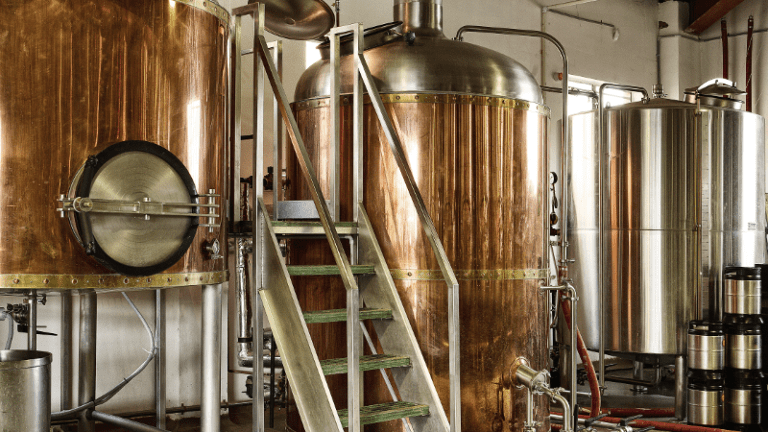Today’s craft brewing revolution is driven by industrial compressors.
Brewing was first developed thousands of years ago and has been performed in a variety of settings. In a time when the idea of indoor refrigeration would have been seen as nothing less than magic, monks in cloistered communities throughout Europe famously brewed some of the world’s best beers.
These Christian brothers supported their monasteries through the sale of their wonderful elixirs.
In a sort of precursor to the craft brewing scene of today, the late medieval era saw the rise of lots of community brewing in private homes, before dedicated storefronts were even common. Much output was led by “alewives,” who planned and executed the entire brewing process from start to finish.
These women wore distinctive hats, which may be part of our imagery around witches today.
Over time, brewing became a trade that could be practiced more widely. Towns and villages had their own small breweries that were often held in common areas. Beer was truly essential to pre-modern people: The brewing process helped limit some of the potential dangers of unclean water.
Luckily, you don’t need to seek out your local monk or witch to find excellent beer today. According to the National Brewers Association, the overall beer market in 2021 was over $100B. Craft brewing captured about $26.8B in sales, achieving 21% dollar growth over the previous year.
The number of U.S. breweries is at an all-time high, with more than 9,000 craft breweries in operation. Large breweries have ballooned to 129, up from 120 in 2020 and just 111 in 2019. Taprooms are seeing enormous growth, with a 6.2% rise in 2021 bringing them up to 3,708 from coast to coast.
And one thing is for sure: They all depend on compressors to make the magic happen!
Industrial Compressors Are Used Throughout the Brewing Process
An industrial compressor provides the mechanical work necessary to make refrigerant gas available to the other parts of a system. Compressors are most often discussed in the context of refrigeration, but they are also used for HVAC cooling and heating functions, relying on all the same principles.
Precise temperature control is an important aspect of brewing. As the brewmaster zeroes in on the right combination of flavors and appropriate process for a distinctive finish, temperature tolerances become tighter until they are as precise as any other industrial environment.
Temperature variances can ruin an entire batch of brew.
With that in mind, more head brewers are turning to remanufactured commercial compressors so they know they’ll have the equipment they need when they need it. Thanks to the significant savings from a remanufactured compressor, they can have redundant units on hand to swap out as needed.
That may make the difference in keeping the taps flowing.
Let’s look at some specific areas where the compressor contributes:
1. Refrigeration of Yeast and “Immature” Brews
Refrigeration was introduced to the brewing industry in 1876. Early ammonia compressors were hailed as a revolution since they allowed year-round brewing regardless of the outside temperature. If a mostly completed brew needed to mature, it was refrigeration to the rescue.
Likewise, it’s vital to remember that beer is a close cousin to bread. Yeast gives any beer some of its most memorable characteristics, and one yeast is never identical to another. To protect their unique products, brewers must be prepared to fully refrigerate their yeast around the clock.
2. Taproom Kegs and Display Cases
These days, most breweries also contain their own dedicated taprooms.
There are plenty of good reasons for this: It’s excellent for branding and helps customers make real memories with their local breweries. Brewmasters can capitalize on this not only with one-time sales but increasingly popular “beer of the month” and annual gift options.
To realize the potential, the taproom space must be optimized for resale without losing any of its charms. Kegs, display cases, and other pieces are generally engineered as individual refrigeration units with compressors built right in. The more refrigeration you have, the more product you can display.
3. Taproom Ambience and Comfort
Of course, it’s not just the beer that needs to keep cool!
Nobody wants to sit around in a sweltering hot taproom, no matter how good the beer or interesting a decked-out building might be. And all that refrigeration means there’s also plenty of waste heat that needs to be offset. Knowing all of that, you’ll need a powerful industrial compressor for your HVAC system, too.
In any application you can name, modern HVAC compressors last 8-10 years with appropriate maintenance. When you need to retire a unit, a compressor remanufacturing team is the best way to source the exact make and model you require without having to wade through months-long backlogs.
Keep it cool, brewers! Your customers will thank you for it.












